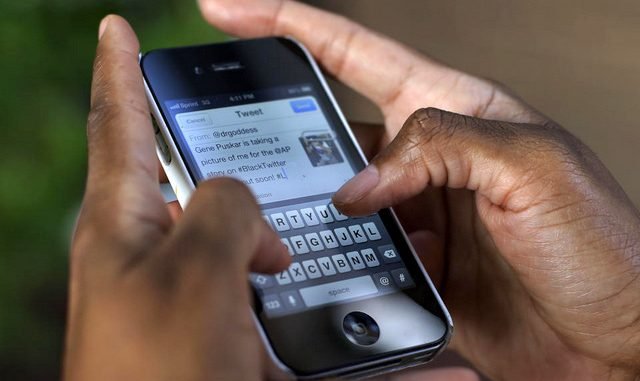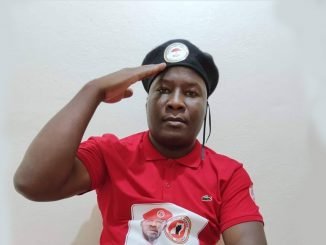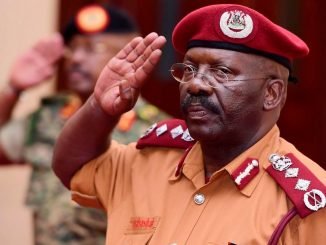
Kampala, Uganda | By Ole Tangen Jr. | All around the world, technology is changing the face of politics. Social network sites like Facebook and Twitter have become the virtual go-to forums to discuss and even demand social and political change.
Bloggers have emerged as the revolutionaries of the 21st century, surpassing journalists and commentators by being faster and more interesting. Tweeters in Tunisia and Egypt have succeeded in coming together to drive out their long time dictator and Facebookers and bloggers are slowly but firmly pushing for dramatic social change in Iran and Libya.
Technology is changing societies all around the world that is, except of course Uganda. Here we sit at the tail end of the longest and most diverse political campaigns in the history of Uganda and the tweeting, Facebooking and blogging public are nowhere to be seen. A brief search for #UgandaVotes, the Twitter hash tag that allows people to better search and sort through tweets, reveals a series of links to media articles and amusing comments but no political substance.
On Facebook, only a few people are involved in actual political debate. With over 3,000 members, the “Friends of Yoweri Kaguta Museveni” page was one of the most popular election-related pages but is completely null and void of any discussion of the candidate or the party’s manifesto. “Another rap, another rap sevo, nrm.yeah!” is the typical comment. Do people fear retribution or do they genuinely not care?
With almost 2,000 members, the “Museveni Must go Home” page revealed some of the frustration and anger that Ugandans feel toward their long-serving president. But outside of demanding that he return to Rwakitura for good, there is no constructive discussion of how to unseat him or how to bring important issues to his attention. The anger was obvious but the desire to debate, discuss and organize was completely absent.
Over at the “I support Inter-party Cooperation (IPC) Uganda” (269 members) no one has commented since November. And over at the Col. Dr. Kizza Besigye page (1,571 members), friends of the candidate offered merely words of support. Where is the debate of his campaign strategy, his missteps, his successes?
In 2008 when then candidate Senator Barack Obama was in full campaign swing, his use of social media was able to connect a fractured opposition into a generally cohesive and united movement.
Obama’s Facebook page had over 2.3 million fans. His YouTube videos were watched over 90 million times and his website my.BarackObama.com had more than 1.5 million registered users.
But he did not achieve this popularity merely through this concept of “connection”. He did this by talking to his supporters, by asking them for their advice and their opinions on critical policy topics including health care and the wars in Iraq and Afghanistan. His campaign transformed into a nationwide conversation on how to change the country for the better.
And his supporters responded not just by praising him but by engaging each other. After he was elected, Obama has continued this social media conversation, using it to discuss topics like health care and the recent shootings in Arizona.
And for the annual State of the Union address on January 25, Obama pulled out all of the stops. The address was streamed live at the WhiteHouse.gov website and users were encouraged to offer comments and questions that would be answered by a panel of experts.
The next day Press Secretary Robert Gibbs (@ PressSec) answered questions on Twitter before his post-State of the Union press briefing. Two days later, President Obama held a live YouTube interview from the White House. Users submitted questions to Obama via youtube.com/askobama.
Obama is also encouraging his government to be more open. Keeping with this, the U.S. Mission Uganda just launched a Facebook page and Twitter feed where they – get this – actually answer queries submitted by normal people like you and me.
I am not listing all these examples as a means to praise Obama, but in order to present to you with an idea of what is possible in a democratic and connected society.
Letters to the editors and commentaries in the New Vision and the Daily Monitor still remain the only way that citizens express their opinions or frustrations. That means that using traditional media, the opinions of perhaps 20 Ugandans are voiced each day.
But with almost 250,000 mostly young Ugandans using Facebook and a fast-growing Twitter community, hundreds of thousands of people can be heard each day! By next year these numbers will double. No government can continue to ignore that.
While we might find ourselves with the same president and parliamentary majority in a month’s time, it does not mean that how we are governed needs to remain the same.
Make your voice heard. Change does not always happen through elections but through the collective power of a frustrated and/or motivated group of citizens.
So even if young people choose not to vote with the ballot, they should vote with their voices, with their beliefs, with their frustrations, with their hopes. Then real change will come to Uganda.



